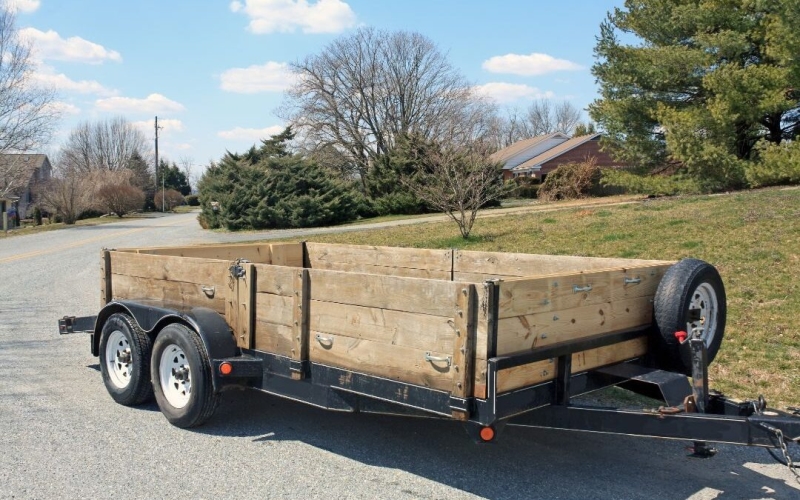Understanding Trailer Maintenance
Trailers are versatile vehicles used across various industries and personal applications. Each type, from enclosed cargo trailers to open utility trailers to specialized vehicle transporters, has unique maintenance considerations. Regular maintenance ensures that trailers are safe for the road, protecting the cargo they carry and the other users sharing the roadways. Knowing when a trailer requires a professional’s touch is invaluable, for instance, when complex mechanical issues arise or when the trailer is subject to rigorous usage. A competent trailer repair shop can address such advanced needs by bringing expertise and specialized equipment. Effective trailer repair and maintenance begins with routine checks and inspections. Before any trip, a comprehensive walkthrough is recommended, examining key components such as the hitch, axles, and lights. Attention to detail during these inspections can catch minor issues before they escalate. Cleaning is more than just aesthetic; it allows for thoroughly inspecting the trailer’s body and frame, which can reveal stress fractures or rust spots. Furthermore, areas such as wheel bearings require regular greasing to maintain smooth operation and prevent failures that could lead to dangerous situations on the road.
Tire Maintenance for Trailers
Trailer tires are critical for safe operation. They carry the load and are the first point of contact with the road, so maintaining them is non-negotiable. It’s essential to check and maintain proper tire pressure regularly and to understand that tires have a life span influenced by usage, load, and environmental conditions. Regular rotation helps ensure even wear while balancing prevents excess vibration that can cause undue stress on the trailer’s suspension and frame. Monitoring tire tread depth is also essential; worn tires compromise traction and braking efficiency, potentially leading to dangerous situations, especially in adverse weather conditions.
Brake System Upkeep
Another critical aspect is the brake system, which must function flawlessly to ensure safe stops. Trailers, especially those carrying heavy loads, rely on brakes to handle the added momentum and weight. Inspecting the brake pads for wear, ensuring the brake fluid is at the proper level and devoid of contamination, and checking the brake lines for leaks or damage is crucial. Regular servicing from a professional becomes increasingly essential for frequently used trailers or carrying loads, as wear on the brake system can be substantial. Many issues with trailer brakes can be subtle and may not be easily detected without a trained eye.
Electrical System Care
Electrical systems in trailers power essential features such as brake lights, turn signals, and internal lighting. These systems add a layer of safety by communicating the trailer’s movements to other drivers. Regular checks should ensure all lights and signals are functioning correctly. Any signs of wear on the wiring or loose or corroded connections loose or corroded connections can lead to malfunctions. Those unfamiliar with the intricacies of electrical repair should seek assistance from a reliable service provider who can efficiently diagnose and rectify issues.
The Impact of Load Distribution
How a trailer is loaded significantly affects its performance and safety. Incorrect loading can cause instability, undue stress on the vehicle towing the trailer, and increased wear on the trailer itself. Manufacturers typically provide guidelines on load capacity and distribution, which should be adhered to strictly. Ensuring that the weight is evenly distributed and securely tied down is essential to maintaining balance and stability on the road and protecting the trailer’s structural integrity over time.
Seasonal Maintenance Strategies
Seasons bring different challenges for trailer maintenance. In colder climates, winter weather can be harsh on trailers, necessitating specific care such as using antifreeze in brake lines and applying lubricants suitable for low temperatures. Conversely, components such as tires and electrical wiring are susceptible to heat-related damage in hot summer months. Adapting maintenance routines to the seasons helps ensure the trailer remains reliable year-round.
Detecting and Addressing Rust and Corrosion
Rust and corrosion are the stealthy adversaries of any trailer. Over time, they can severely weaken the structural components and lead to costly repairs or replacement. Regular inspection for rust, particularly in joints and crevices, is needed. Early detection and treatment with appropriate rust-proofing paints or sealants can save much trouble and expense. Keen maintenance enthusiasts often take proactive measures to treat exposed metal surfaces before any sign of rust appears, which is an advantageous approach to longevity.

